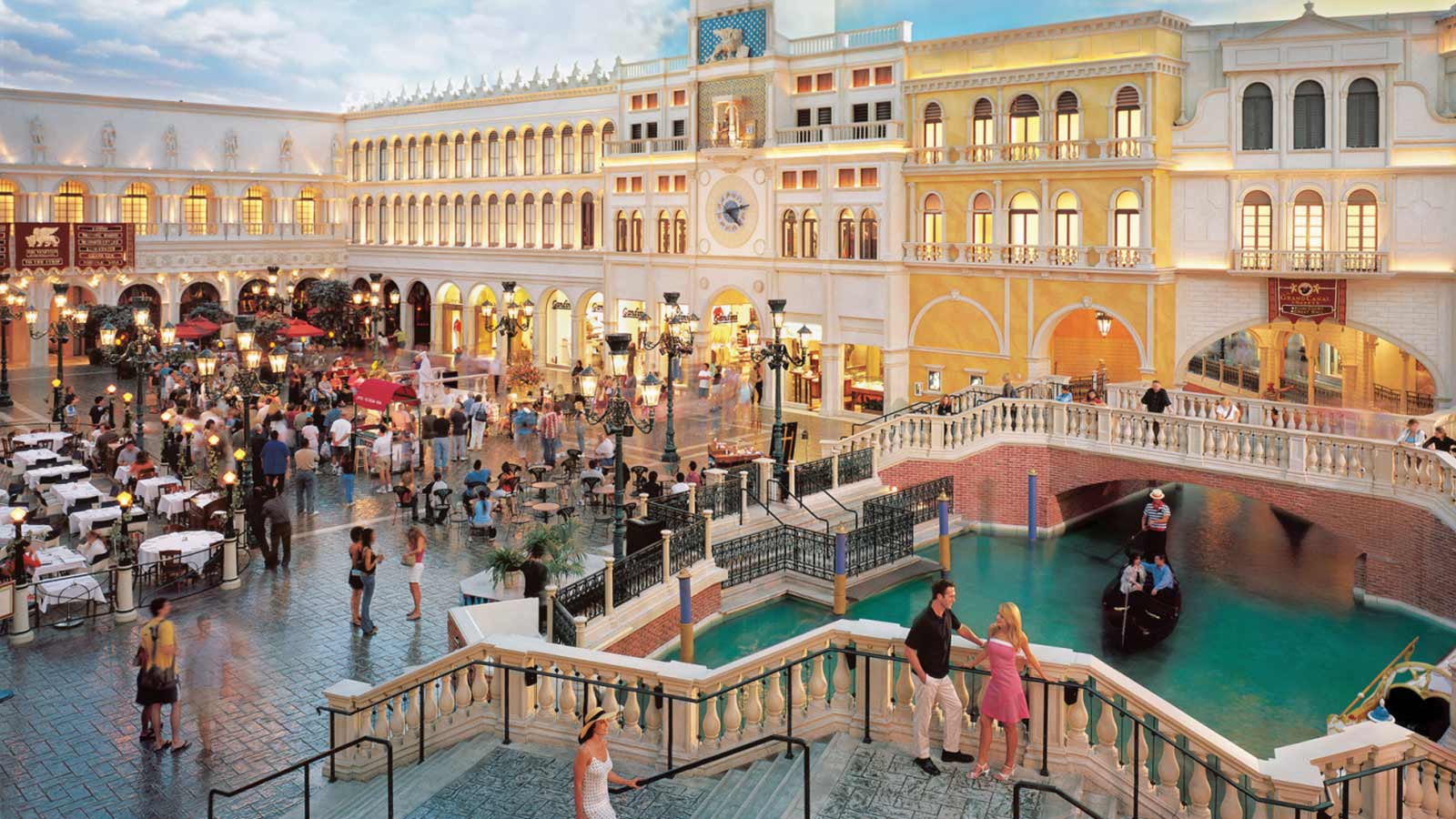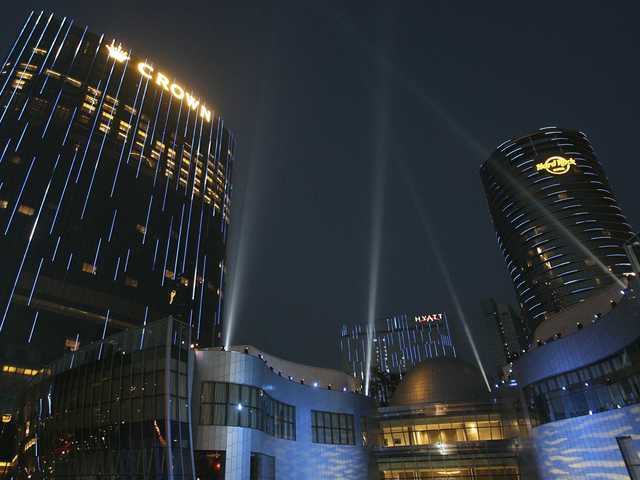Gambling Mecca Macau
- Macau has been dubbed ‘Monte Carlo of the East’ or ‘Las Vegas of Asia’ due to its growing status as a gambling mecca, alongside various Las Vegas sister casinos. But the similarities end there, as Macau’s income has dwarfed that of the entire state of Nevada as of 2010.
- With casino revenues on the slide in China’s gambling mecca, city officials and developers are looking to win over visitors with non-gaming attractions. Could this be the shape of Macau to come?
- Gambling in Macau has been legal since the 1850s when the Portuguese government legalised the activity in the autonomous colony. Since then, Macau has become known worldwide as the 'Gambling capital of the world' or 'Monte Carlo of the East'. Gambling tourism is Macau's biggest source of revenue, making up about 50% of the economy.
This time we are looking on the crossword puzzle clue for: Eastern gambling mecca.
it’s A 22 letters crossword definition.
Next time when searching the web for a clue, try using the search term “Eastern gambling mecca crossword” or “Eastern gambling mecca crossword clue” when searching for help with your puzzles. Below you will find the possible answers for Eastern gambling mecca.

We hope you found what you needed!
If you are still unsure with some definitions, don’t hesitate to search them here with our crossword puzzle solver.
Swinging luck in one’s favor is paramount in the world’s gambling mecca. Wynn Macau and MGM China (a joint venture between MGM Resorts and Ho’s daughter, Pansy Ho) have enthusiastically. Mar 20, 2020 American casinos are in crisis as China bans tourism to gambling mecca Macau following two imported cases of the coronavirus in the city.
Possible Answers: MACAU.
Last seen on: NY Times Crossword 2 Oct 20, Friday
Random information on the term “MACAU”:
Legend:
Chinese (simplified Chinese: 汉语; traditional Chinese: 漢語; pinyin: Hànyǔ; lit.: ‘Han language’ or especially though not exclusively for written Chinese: 中文; Zhōngwén; ‘Chinese writing’) is a family of East Asian analytic languages that form the Sinitic branch of the Sino-Tibetan languages. Chinese languages are spoken by the ethnic Han Chinese majority and many minority ethnic groups in China. About 1.2 billion people (around 16% of the world’s population) speak some form of Chinese as their first language.
The varieties of Chinese are usually considered by native speakers to be regional variants of ethnic Chinese speech, without consideration of whether they are mutually intelligible. Due to their lack of mutual intelligibility, they are generally described as distinct languages (perhaps hundreds) by linguists who sometimes note that they are more varied than the Romance languages.[b] Investigation of the historical relationships among the Sinitic languages is just getting started. Currently, most classifications posit 7 to 13 main regional groups, based on often superficial phonetic developments, of which the most populous by far is Mandarin (about 800 million speakers, e.g. Southwestern Mandarin), followed by Min (75 million, e.g. Southern Min), Wu (74 million, e.g. Shanghainese) and Yue (68 million, e.g. Cantonese). These groups are unintelligible to each other and generally many of their subgroups are mutually unintelligible as well (e.g., not only is Min Chinese a family of mutually unintelligible languages, but Southern Min itself is not a single language). There are, however, several transitional areas, where languages and dialects from different branches share enough features for some limited intelligibility between neighboring areas. Examples are New Xiang and Southwest Mandarin, Xuanzhou Wu and Lower Yangtze Mandarin, Jin and Central Plains Mandarin and certain divergent dialects of Hakka with Gan (though these are unintelligible with mainstream Hakka). All varieties of Chinese are tonal to at least some degree and largely analytic.
At morning Mass in St. Anthony's Church on Sunday, Lancelot Rodrigues, an 84-year-old Roman Catholic priest, can name just about every member of the congregation in the sparsely populated pews listening to his sermon in Portuguese. He keeps the service short, to about 30 minutes. He knows from years of practice that brevity brings better crowds.
Even two days before Christmas, there were only a few dozen people to hear Rodrigues say they should open their hearts to Christ on his birthday. Nearly all those seated in the church have been coming for many decades; they are either middle-aged or as silver-haired as the priest.
'It is sad,' Rodrigues said. 'The fervor of the people has now diminished.'

In Macau, the birthplace of Catholicism in China and East Asia, the ornate beauty of the centuries-old churches bears testament to its past. During the Ming Dynasty, Mateo Ricci, an Italian Jesuit and mathematician, became the first to carry Catholicism from Macau to Beijing, where he is buried.
But 450 years after the Portuguese established Europe's first settlement here on the China coast, bringing missionaries who spread Christianity to China, Japan and Korea, Catholicism in the place the Portuguese called 'City of the Name of God' is in crisis.
For the past 30 years, the number of Roman Catholics and their proportion of Macau's population have been in steep decline, a stark contrast to the 45 percent increase in the number of Roman Catholics worldwide over the same period, according to the Holy See in Rome.
The church in Macau now counts only 18,122 adherents, less than half as many as 30 years ago, and the share of Macanese who call themselves Catholic has now fallen to less than 4 percent, compared with about 15 percent in the 1970s.
There are fewer baptisms. Priests complain that many Roman Catholics are not even married in the church anymore.
'It's very rare for my friends to go to church,' said Jessica Marques, who at 27 was about the youngest person to come to Sunday Mass in St. Anthony's. 'I don't think their parents go.'
The decline is also affecting the priesthood.
The average age of a priest in the Macau Diocese is over 60. No priest has been ordained by the diocese in 15 years.
Still, the churches here are plentiful. There are 28 chapels and churches in the 29.8km2 of this semiautonomous region of China, which was vacated by Portugal in 1999.
But Macau's gambling-fueled economic boom has posed an unexpected challenge to the religion, as many Macanese chase quick riches in the glitzy casinos.
Today there are as many casinos as churches, and unlike the churches, the casinos are full and quickly growing in number. The MGM Grand, the latest of many new huge gaming complexes, opened on the waterfront last week.
Rodrigues, a jovial priest who has a taste for an occasional fine glass of whiskey against doctor's orders and admits to having made the odd wager himself in earlier days, said the casinos were both a blessing and a bane.
'In Macau, we were not prepared for this avalanche of money coming in,' he said. 'After all, the state and the casinos give us all the benefits we have here, and we forget about the religious benefits. The church, God, has been forgotten.'
Chinese Gambling Mecca Macau

Historically, Catholicism has occupied an uneasy place in China. It was suppressed during the Cultural Revolution. When restrictions were relaxed in 1976, the official Beijing-controlled church had trouble accepting the notion that the Vatican should have the right to appoint bishops, although there have been recent signs of a thaw.
Rome, too, struggled to adapt to Chinese culture. In the 18th century, Augustinian and Jesuit priests were expelled from Macau in a dispute with the Vatican over the practice of allowing Chinese converts to Catholicism to maintain the tradition of ancestor worship.
Cheng Hing Wan, a researcher in religious philosophy at the University of Macau, said Buddhism and Taoism in Macau had remained strong, even as Catholicism declined. 'They have a natural affinity with Chinese culture,' he said of these beliefs. 'This is something the Catholic Church can never have.'
Yet elsewhere in China, the state-controlled church, while relatively small and kept under tight rein by the Communist government, has been flourishing.
The size of the Beijing-authorized church is estimated at 7 million practitioners, but the underground church lifts that to at least 10 million, religion experts estimate.
Hong Kong has won converts, perhaps because of its high-profile cardinal, Joseph Zen (
Bishop Jose Lai (
To find priests, Lai said he had taken to searching for recruits abroad, persuading four South Korean priests to fill the gaps of his aging clergy.
Still, he added, 'As a diocese, we have to get our own local priests.'
That is likely to remain a difficult goal. The rapid growth of Macau has given the young a dizzying array of leisure and work choices. The average casino job is lucrative enough to enjoy a spendthrift lifestyle.
Gambling Mecca Macau
The answer, some priests say, might come in emulating the promotional flair of the casinos. Rodrigues criticized priests for becoming too distant from the people they seek to serve.
Gambling Mecca Macau
'What we need here are priests with public relations attitudes, like the casinos,' he said.